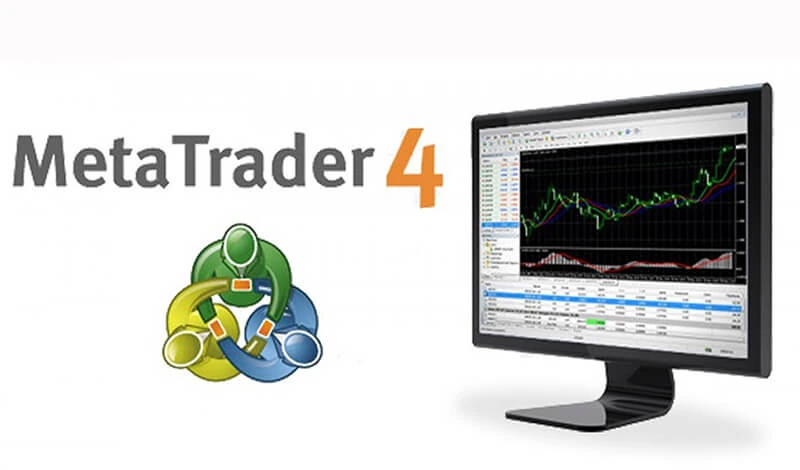Last updated: February 2026
Getting started with cryptocurrency trading can be exciting but also a bit overwhelming, especially for newcomers. One of the most popular digital assets you’re likely to come across is Ethereum (CRYPTO: ETH). Whether you want to invest in it, experiment with blockchain technology, or follow the recommendations of trusted sources, it’s essential to know the proper way to buy Ethereum safely.
In this guide, we will walk you through the entire process of purchasing Ethereum on NordFX, a globally trusted broker. By following this step-by-step tutorial, you'll be well on your way to owning Ethereum and understanding how to manage it securely.
On NordFX, Ethereum is traded as a CFD, allowing you to speculate on ETH price movements without owning the underlying cryptocurrency.
Key Takeaways
- NordFX is a global broker that offers cryptocurrency, forex, stocks, indices and metal trading services.
- Ethereum (ETH) is the native cryptocurrency of the Ethereum blockchain, a decentralized platform for smart contracts and decentralized applications (dApps).
- The process to buy Ethereum on NordFX involves creating an account, funding it, navigating to the cryptocurrency market, purchasing Ethereum, and storing it securely.
What is NordFX?
NordFX is a global brokerage company that was established in 2008. Known for its wide range of financial instruments, including forex, stocks, cryptocurrencies, etc., NordFX is a well-respected and reliable broker for traders of all experience levels. NordFX supports both beginner traders and more advanced investors, offering an easy-to-navigate interface, and more powerful trading platforms like MetaTrader 4 (MT4) and MetaTrader 5 (MT5).
NordFX's reputation as a secure and user-friendly platform makes it a popular choice for cryptocurrency trading, including Ethereum (ETH). With a focus on protecting users' funds, NordFX is trusted by traders worldwide.

What is Ethereum?
Ethereum is more than just a cryptocurrency; it is a groundbreaking decentralized blockchain platform that enables the creation and execution of smart contracts and decentralized applications (dApps). Launched in 2015 by Vitalik Buterin and his collaborators, Ethereum transformed the digital landscape by offering a public, programmable, and secure infrastructure for developers to build decentralized systems, eliminating the need for intermediaries like banks, brokers, or centralized authorities.
One of Ethereum’s defining innovations is its ability to support smart contracts. These are self-executing contracts with the terms of the agreement directly written into code. They automatically execute transactions once predefined conditions are met, reducing the reliance on traditional contract enforcement mechanisms. This has made Ethereum the backbone of many decentralized financial (DeFi) protocols, which enable a range of financial services such as lending, borrowing, and trading without middlemen. The versatility of Ethereum has also led to its pivotal role in the development of non-fungible tokens (NFTs), which represent ownership of digital assets.
The native cryptocurrency of the Ethereum network is called Ether (ETH). Often mistakenly referred to as Ethereum, Ether is the fuel that powers the Ethereum blockchain. It is used to compensate participants for processing transactions, securing the network, and executing smart contracts. Though Bitcoin was the first cryptocurrency, Ethereum quickly emerged as a more dynamic platform due to its programmability, leading to the development of an ecosystem of decentralized applications (dApps) beyond simple value transfers.
Ethereum operates on a decentralized network of computers (also called nodes), which collaborate to verify and execute transactions across the network. This decentralized nature ensures that no single entity controls the network, enhancing security, censorship resistance, and transparency. Every transaction on the Ethereum network is recorded on a public, immutable ledger known as the blockchain, which anyone can access and audit.
Ethereum is also the backbone of thousands of other cryptocurrencies and blockchain projects that rely on its network for validation and execution. Notably, Ethereum has undergone significant upgrades over time, with the most prominent being its transition to Ethereum 2.0, a shift from a proof-of-work (PoW) to a proof-of-stake (PoS) consensus mechanism. This upgrade is designed to enhance scalability, security, and energy efficiency, allowing Ethereum to accommodate more transactions and users while reducing its environmental footprint.

Despite competition from newer blockchain platforms like Solana and Binance Smart Chain, Ethereum remains the second-largest cryptocurrency by market capitalization, trailing only Bitcoin. Its flexibility, vast developer community, and commitment to continuous improvement have solidified its position as a foundational element of the broader cryptocurrency and decentralized finance (DeFi) ecosystem.
How to Buy Ethereum on NordFX
If you already understand what Ethereum is, you can jump straight to the step-by-step buying process below.
Step 1: Create an Account
To begin trading Ethereum on NordFX, you’ll first need to create an account. The process is simple:
- Go to the NordFX Website: Visit the official NordFX website and click the "Open Account" button.
- Complete the Form: Fill in your basic personal information, such as your name, email address, and phone number.
- Account Activation: Once the form is completed, your account will be created, and you can verify your identity later on.
With your account activated, you’re ready to start trading.
Step 2: Fund Your Account
Once your NordFX account is set up, you’ll need to deposit funds into it. NordFX supports several funding options, including:
- Bank Transfer
- Credit/Debit Card
- Cryptocurrency
- eWallets like Neteller or Skrill
To fund your account:
- Log In: Access your NordFX account.
- Deposit Section: Navigate to the "Deposit" section in your account dashboard.
- Select Payment Method: Choose your preferred payment method from the available options.
- Enter Amount: Specify the amount you wish to deposit. Make sure you have enough funds for your Ethereum purchase.
- Confirm: Follow the on-screen instructions to complete your deposit.
Funds should appear in your NordFX account shortly after the transaction is completed, allowing you to proceed to the next step.
Step 3: Navigate to the Cryptocurrency Market
Once you’ve funded your NordFX account, you need to access the cryptocurrency market by using the MT4 or MT5 trading terminal:
- Install MT4 or MT5: Download and install the appropriate trading platform (MT4 or MT5) from the NordFX website.
- Log In: Open the terminal, go to File → Login to Trade Account, and enter your credentials.
- Open Market Watch: Press Market Watch and locate the ETHUSD trading pair.
- View Ethereum Chart: Right-click on ETHUSD, select Chart Window, and the Ethereum chart will appear for trading.

Step 4: Choose Your Purchase Method
After selecting Ethereum, you will need to decide how you want to purchase it. NordFX provides two primary methods:
- Trading at Market Price: This is the most straightforward option, allowing you to buy Ethereum at its current market price.
- Placing a Pending Order: With this option, you can specify a price at which you’d like to buy Ethereum. If the market price reaches this level, NordFX will automatically complete the purchase for you.
Step 5: Finalize the Purchase
After choosing your preferred method of purchasing Ethereum, the final step is to confirm the transaction:
- Specify Quantity: Enter the amount of Ethereum (ETH) you want to buy. You can buy fractional amounts of Ethereum, so you don’t need to purchase a whole Ether.
- Confirm Purchase: Review the transaction details, including the price and quantity, then confirm your purchase.
- Ethereum in Your Account: Once the transaction is complete, your newly purchased Ethereum will appear in your NordFX account.
For example, if ETHUSD is trading at $2,000 and you open a 0.1 position, your exposure will depend on the contract size and leverage used.
What is Ethereum Margin Trading?
Ethereum margin trading is a strategy that allows traders to borrow funds to increase their buying power when trading Ethereum (ETH). This type of trading uses leverage, enabling traders to control a larger position than their actual capital would allow. The amount of leverage varies depending on the broker and platform, with common ratios being 2:1, 5:1, or even higher.
When trading Ethereum with margin, the trader deposits a percentage of the total trade value, known as the margin, and borrows the rest from the broker. This enables traders to amplify their gains.
Margin trading is particularly popular in cryptocurrency markets, including Ethereum, due to the high volatility and opportunities for short-term gains. Traders can open both long positions (betting that the price of Ethereum will rise) and short positions (betting that the price will fall).
Key Concepts in Ethereum Margin Trading:
- Leverage: The ratio that allows traders to control a larger position than their deposit. For example, a 5:1 leverage allows a trader to control $5,000 worth of Ethereum with just a $1,000 deposit.
- Margin: The initial deposit required to open a leveraged position. It serves as collateral for the borrowed funds.
- Long and Short Positions: Margin trading allows traders to bet on both rising (long) and falling (short) Ethereum prices.
- Liquidation Risk: If the market moves against a trader’s position and their account balance falls below the maintenance margin level, the broker can liquidate their position to prevent further losses.
Benefits of Ethereum Margin Trading:
- Increased Potential Profits: Leverage magnifies potential gains, allowing traders to profit more from smaller price movements.
- Ability to Trade on Both Sides of the Market: Margin trading allows both long and short positions, enabling traders to profit in both bull and bear markets.
- Access to Larger Positions: Margin allows traders to open larger positions than they could with their available capital alone.
Ethereum Margin Trading on NordFX
In Ethereum margin trading on NordFX, traders can leverage their positions up to 1:100 for the ETHUSD pair. Below are the contract specifications for MT5 Zero Trading Account:
- Margin Ratio: 1:100
- Typical Spread: 330
- Swap Long: -9% yearly
- Swap Short: -2% yearly
- Precision: 2 decimal points
- Trading Hours: Sun 23:05 - Fri 23:00
These conditions may change depending on market liquidity and account type. Always check current specifications in your trading platform.
NordFX offers competitive margin ratios, allowing traders to amplify their exposure with enhanced risk and potential reward. However, it's essential to manage the risks, including interest rates and volatility, carefully.
While leverage can increase profits, it also increases potential losses and should be used carefully, especially by beginner traders.
Frequently Asked Questions
Is NordFX a Safe Broker to Buy Ethereum?
Yes, NordFX is a well-established global brokerage known for its security features. It uses advanced encryption technologies and offers secure methods to protect user assets.
Can I Use NordFX from Anywhere in the World?
NordFX operates in many countries worldwide. However, some restrictions apply depending on your country of residence. It’s essential to verify whether NordFX is available in your region before signing up.
How Much Ethereum Do I Need to Start Trading?
There is no minimum requirement to buy a whole Ethereum coin on NordFX. You can buy fractional amounts, making it accessible to traders with varying levels of capital.
Do I own Ethereum when I buy it on NordFX?
When trading Ethereum on NordFX, you trade ETH as a CFD. This means you do not own the actual cryptocurrency but speculate on its price movements.

